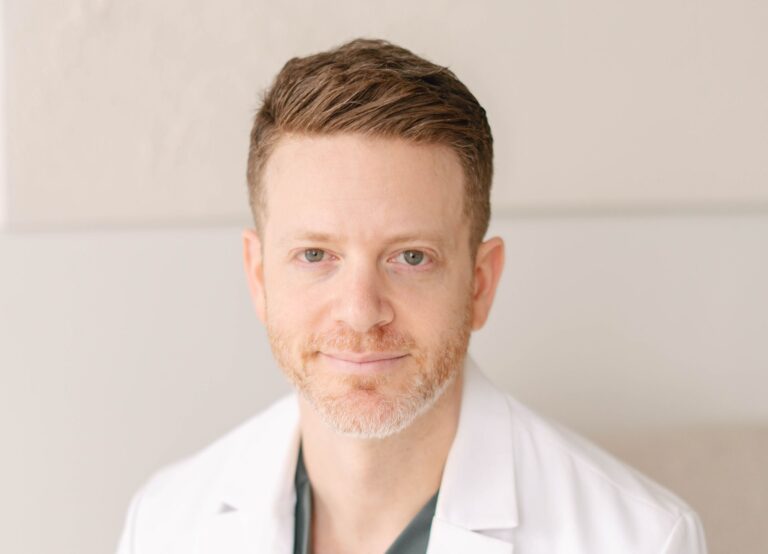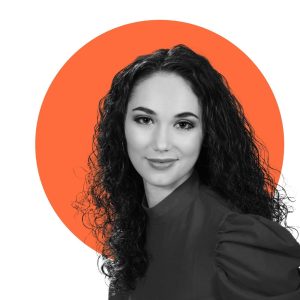Dr. Michael Roskies is a double fellowship trained, double board certified facial plastic and reconstructive surgeon and owner of Yorkville Plastic Surgery Center. Quickly recognized as an emerging leader in aesthetic medicine today, Dr. Roskies was hand-selected to continue the legacy of exceptional facial cosmetic surgery in the heart of Toronto.
Check out more interviews with entrepreneurs here.
WOULD YOU LIKE TO GET FEATURED?
All interviews are 100% FREE OF CHARGE
What inspired you to pursue a career in plastic and reconstructive surgery, specifically focusing on facial aesthetics?
Dr. Michael Roskies: There is no other specialty in medicine where your results are on display for others to see as much as in facial plastic surgery. And while I know perfection is not a possibility when operating on living, breathing tissue, the pursuit of perfection in the face of this challenge is what drives me to improve every single day. Having healthy patients choose and entrust me with their most perceptible feature creates an instant bond that few doctors share with their patients. I get to hear about their losses, fears but also hopes and goals. We get to talk about their families and they’ll often refer their closest friends to me. Having cosmetic surgery is a “want” and not a “need”, it means patients really get to make a choice to come see me. It’s such a special responsibility that I never take for granted.
Was there a moment in your training or early practice that solidified your passion for this field?
Dr. Michael Roskies: I was just finishing my training in head and neck surgery and interviewing for head and neck reconstructive fellowships. We were operating on a young patient who had cancer removed from his face and then required reconstruction. After the tumor was out, I went with the cancer surgeon to the family in the recovery room. He reported the surgical removal was successful and they thanked him and we went back into surgery. After the reconstruction was done, I went with the facial plastic surgeon to see the same family. When he reported the reconstruction was successful, they broke down in tears and thanked him for restoring their loved-one back to normal. It was a powerful moment for me.
We often forget that there are people behind the patient we meet as doctors. I wanted to be more on that people’s side. Even though my practice is solely cosmetic, I still have such respect for the reconstructive aspect of our specialty. I no longer restore what was once lost, but I get to enhance what already exists. I love being a quality of life doctor and while I don’t change the world, I get to change the lives of people that do.
What does it mean to you to be recognized as an emerging leader in aesthetic medicine?
Dr. Michael Roskies: It’s a really nice honor. I think the future of aesthetic medicine is so bright, and I’m excited to be part of shaping it.
The rise in facelifts since 2015 is notable. What motivates the increase?
Dr. Michael Roskies: Two things happened independently, but at the same time a few years ago. First, surgeons became aware of the risks of many non-surgical skin tightening treatments while patients also started to experience the negative cosmetic effects of overfilled faces. Secondly, COVID hit and we all started to see ourselves in dynamic real time, all the time, instead of catching static glances for minutes a day in the mirror. The two intersected and led people to look for more natural ways to rejuvenate their face while treating them more definitively.
Right around this time, it just so happens that our techniques for facelift surgery advanced as surgeons shared approaches and philosophies online, faster than ever before. We now have the results to meet the demand.
There’s never been a better time to be a facelift patient or a facelift surgeon.
Why are patients moving away from filler overload in favour of facelifts?
Dr. Michael Roskies: Fillers are a great example of “indication creep”, a psychological phenomenon where the user expands the original intended use based on perceived similarities. Fillers (once appropriately referred to as “dermal fillers”) were first indicated for use in the nasolabial folds by plumping up the skin. This made sense because hyaluronic acid is found in our skin. Replacing like with like is good.
To grow the market size, the companies and providers made the leap to say that the aging process is not just about skin, but also about volume loss. They replaced fat loss with a product that was intended for more superficial skin use. Most of the filler indications today, people will be surprised to learn, are off-label.
Filler does not dissolve as fast as we once believed, with MRI studies demonstrating that it persists for years after placement. Adding filler on top of filler creates “filler creep” where the net effect is just too much volume.
The problem is that aging is not just volume loss, it’s tissue descent and skin deterioration. Facelift surgery with skin resurfacing naturally reverses the aging process. Fat used at the time of surgery is natural, permanent and has added benefits to hydrate and plump the skin.
How do you address the desire for subtlety with your clients?
Dr. Michael Roskies: As a facial plastic surgeon, people will seek out my services because they are drawn to not just my training and techniques, but also my aesthetic eye. There’s a balance to be struck between knowing when enough is enough or when you’re overdoing it. Overdoing it is just not my style and that’s never a concern I need to address with my patients. However, sometimes they have fears of undergoing it.
As a great surgeon once proclaimed “everyone wants a conservative result until they get one”. There’s a difference between having a natural result and having a subtle one. Surgery is an investment – emotional, financial, time – the last thing you want at the end of this is to see no change at all.
So my goal is not to be subtle, it’s to do the procedures necessary to achieve a natural result. Sometimes this means focusing on just one problem area for my patients, or sometimes this means doing comprehensive facial rejuvenation to make sure it all matches.
At the same time, I do my best to leave no traces of surgery. I pride myself in using and helping to pioneer the latest techniques. I do every little move and throw every little stitch in surgery. I am involved as much as I can be in the post-care recovery. I like to think it all adds up to a smoother recovery and a more undetectable result.
How do you determine which technique is most suitable for a patient, delivering a personalized approach?
Dr. Michael Roskies: I love facial surgery because it’s like being Mike Tyson who once said something to the effect of “everyone has a plan until they get punched in the face”. I used to spend hours planning every detail, rehearsing the steps and then executing surgery, no matter how big or small. But, as I’ve evolved in my practice, I’ve come to appreciate that you have to use both sides of your brain, the left logical/technical and the right artistic/creative side. It doesn’t matter how prepared your left side is for a case, until you get in there, you’re never really sure what you’re going to see. That’s when the right side kicks in. It harnesses the experience of the left, but uses spatial awareness and intuition to plan and execute.
Every case is different, no two patients get the same technique, but the outcome is best when both sides of the brain are firing on high.
What is the most rewarding feedback you’ve received from a patient?
Dr. Michael Roskies: I know this is not what you were expecting, but it is recent so comes to mind first. A patient of mine who has been with me for a long time has seen the evolution of my career from the beginning. I recently did her facelift and she looks incredible. When she left the clinic the other day, she turned to me, looked me dead in the eye and said “I’m really proud of you”. It shocked me a bit, but put it all into perspective. I’m constantly striving to grow and achieve more. At the core of what I do though, I’m just trying every year to make nice people happy. This past year more than others I have been able to reflect on what we did and, honestly, I’m just really proud too.
Where can readership go to learn more about you?
Dr. Michael Roskies: https://drmikeroskies.com/
Brooke Young, VIP Contributor to ValiantCEO and the host of this interview would like to thank Dr. Michael Roskies for taking the time to do this interview and share his knowledge and experience with our readers.
If you would like to get in touch with Dr. Michael Roskies or his company, you can do it through his – Linkedin Page
Disclaimer: The ValiantCEO Community welcomes voices from many spheres on our open platform. We publish pieces as written by outside contributors with a wide range of opinions, which don’t necessarily reflect our own. Community stories are not commissioned by our editorial team and must meet our guidelines prior to being published.





